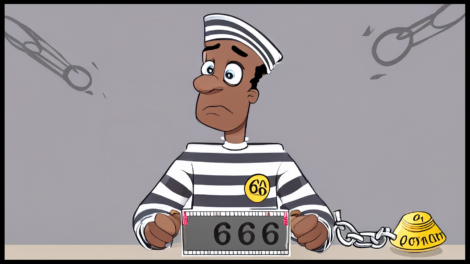Lottery Games Rules and Regulations
Lotteries are a form of gambling where participants buy tickets for a chance to win prizes through random draws. These games are popular worldwide, often contributing to public funds or charitable causes. However, the lottery games rules and regulations are strict, to ensure fairness, protect players, and maintain integrity. This section outlines the general rules for playing and the regulatory frameworks that govern lotteries.
General Rules for Playing
Playing a lottery typically involves:
- Ticket Purchase: Players buy tickets, either selecting numbers themselves or using a Quick Pick for random selection.
- Drawing: A random draw determines winning numbers or tickets, often conducted publicly or via secure systems.
- Prize Distribution: Prizes are awarded based on matching numbers, with larger prizes having lower odds.
- Age Restrictions: Players must usually be 18 or older, though this can vary by jurisdiction.
Responsible gambling is encouraged, with resources like GamCare (GamCare) available for support.
Regulatory Framework
Lotteries are regulated to ensure fairness and player protection:
- Licensing: Operators need licenses from bodies like the Gambling Commission in the UK (Types of lotteries).
- Promoter Responsibilities: Promoters must be authorized, ensure legal compliance, and educate ticket sellers on regulations.
- Advertising: Ads must be responsible and not target minors, following codes like the UK’s CAP Code.
- Prize Claiming: Clear procedures, including deadlines, are set for claiming prizes, with unclaimed prizes sometimes forfeited.
- Taxation: Prizes may be taxable, with rates varying by jurisdiction.
Rules differ by country, such as the UK’s National Lottery regulations or state-specific rules in the US.
Lottery Game Rules and Regulations: A Comprehensive Survey Note
Lotteries represent a significant and regulated form of gambling, where participants purchase tickets for a chance to win prizes through random draws. This survey note provides an in-depth exploration of lottery game rules and regulations, covering definitions, types, operational mechanics, regulatory frameworks, jurisdictional variations, historical context, and responsible gambling practices. The information is drawn from various authoritative sources to ensure a thorough understanding for both operators and players.
Definition and Types of Lotteries
A lottery is defined as a gambling activity that meets three criteria:
- Participants must pay to enter, typically by purchasing a ticket.
- There must be at least one prize available.
- Prizes are awarded based on chance, with no element of skill influencing the outcome.
Lotteries can be classified into several categories, each with distinct characteristics:
- Simple Lotteries: Prizes are awarded solely based on chance. Examples include basic raffles or draws, where winners are determined by a single random selection.
- Complex Lotteries: These involve a series of processes, with the first process based on chance. For instance, a lottery might include multiple rounds of draws or additional steps, such as bonus games, to determine winners.
- National Lotteries: Operated by the state or a designated body, often to raise funds for public good. Examples include the UK’s National Lottery (Players’ Guide) or the U.S. Powerball, with proceeds typically supporting education, infrastructure, or charities.
- State Lotteries: Similar to national lotteries but operated at the state or regional level, such as the Georgia Lottery in the U.S. (Official Game Rules).
- Private Lotteries: Run by organizations like charities or community groups for specific causes, subject to strict regulations to ensure they are not for private or commercial gain.
The distinction between simple and complex lotteries is crucial, as it affects regulatory requirements and operational procedures. For instance, the Gambling Commission in the UK (Types of lotteries) outlines that simple lotteries must award prizes solely on chance, while complex lotteries may involve additional processes, provided the initial step is chance-based.
General Rules for Playing Lotteries
The mechanics of playing a lottery follow a standardized process, though specifics may vary by game and jurisdiction:
- Ticket Purchase: Players buy tickets, which may involve selecting numbers (e.g., in Lotto) or receiving pre-selected numbers through a Quick Pick option. Tickets can be purchased in-store, online, or via mobile apps, depending on the lottery.
- Drawing: A random draw is conducted to determine the winning numbers or tickets. This can be done manually, such as drawing numbered balls, or through computerized systems to ensure fairness and transparency. Draws are often broadcast live or published online for public verification.
- Prize Distribution: Prizes are awarded based on matching numbers or other criteria. For example, in games like Powerball, players must match five main numbers and a Powerball to win the jackpot. Prize tiers vary, with larger prizes having lower odds, typically published in the game rules. Unclaimed prizes may be rolled over to future draws or allocated to good causes, depending on regulations.
- Age Restrictions: Players must be of legal age to participate, typically 18 or older. For instance, the UK’s National Lottery recently updated its age limit to 18 following a consultation (Types of lotteries), with details available at government response.
- Responsible Play: Lotteries promote responsible gambling, encouraging players to set limits on spending and time. Resources like GamCare (GamCare) provide 24/7 support for those affected by gambling issues, with contact details such as 0808 8020 133. Operators are required to provide information on the likelihood of winning and how proceeds are used, ensuring transparency.
Regulations and Responsibilities
Lotteries are subject to strict regulations to ensure integrity, fairness, and player protection. Key regulatory aspects include:
Licensing
- Lottery operators must obtain licenses from regulatory bodies, such as the Gambling Commission in the UK (Lottery responsibilities) or state lottery commissions in the U.S. Licensing ensures operators meet standards for security, fairness, and player protection, with conditions outlined in documents like the Licence Conditions and Codes of Practice (LCCP) (Lotteries sector guidance).
Promoter Responsibilities
- Promoters must be authorized in writing by the governing body of the organization running the lottery, such as a charity or society. They are legally responsible for ensuring the lottery complies with all regulations, including the Gambling Act 2005 in the UK (Lottery responsibilities). This includes ensuring ticket sellers and distributors are aware of relevant rules, even if subcontractors are used. For example, small society lotteries must register with local authorities if proceeds are less than £20,000 per draw or £250,000 annually (Lotteries toolkit).
Advertising
- Lottery advertising must be socially responsible and not target minors or vulnerable groups. In the UK, Section 17 of the CAP Code applies, emphasizing protection for children and young persons under 18 (Gambling, betting and gaming). Ads must avoid encouraging excessive play and must include responsible gambling messages.
Prize Claiming
- Clear procedures are in place for claiming prizes, including deadlines and verification processes. For instance, in the UK’s National Lottery, players must claim prizes within a specified period, and unclaimed prizes may be allocated to good causes (Set For Life Game Specific Rules). Operators must ensure transparency in prize distribution, with details available prior to participation.
Taxation
- Prizes may be subject to taxes, with rates varying by jurisdiction. In some countries, taxes are withheld at the time of payout, while in others, winners are responsible for reporting and paying taxes. For example, in the U.S., lottery winnings are subject to federal and state taxes, depending on the state.
Compliance with Codes of Practice
- In the UK, operators must adhere to the LCCP, which outlines requirements for fair play, player protection, and operational standards (Lotteries sector guidance). This includes displaying licensed status on websites and apps, linking to public registers for transparency, and making licenses available for inspection by regulatory bodies.
Player Protection
- Operators are required to promote responsible gambling, providing tools for players to set spending limits and access support. They must also publish annually the proportion of proceeds applied to the lottery’s purposes, ensuring transparency (Lotteries toolkit). For example, social responsibility codes require information on how proceeds are used and the likelihood of winning, available before participation.
Variations by Jurisdiction
Lottery rules and regulations vary significantly by country and region, reflecting cultural attitudes and legal frameworks:
United Kingdom:
- The Gambling Commission regulates all lotteries, including the National Lottery, under the Gambling Act 2005 (How we regulate the National Lottery). Age restrictions are set at 18, with specific codes for advertising and player protection (Types of lotteries). Operators must follow LCCP conditions, with details on public registers (Public Register).
United States:
- Each state has its own lottery commission, leading to variations in games, rules, and prize structures. For example, the Georgia Lottery has specific rules for ticket sales, prize claiming, and player registration (Official Game Rules). Some states, like California, have additional regulations for online play.
New Zealand:
- The Department of Internal Affairs regulates lotteries under the Gambling Act 2003, with rules for raffles and sweepstakes outlined in official guidance (Lottery Game Rules). Operators must comply with class 1, 2, or 3 gambling regulations, depending on scale.
Other Countries:
- Regulations often reflect cultural attitudes toward gambling. For instance, Italy’s Lotto, established in 1863, is a national lottery with proceeds going to the state (Lottery). In France, lotteries are regulated under strict state oversight, with historical roots dating back to the 16th century.
Historical Context
Lotteries have a rich history, dating back to ancient civilizations and evolving into modern state-run systems:
- In ancient Rome, lotteries were used as entertainment during feasts, with prizes like slaves or property distributed through draws (Lottery).
- In the 15th century, lotteries in Burgundy and Flanders raised funds for public defenses and aid for the poor, marking early examples of lotteries for public good.
- The first European public lottery awarding money prizes was the “ventura” in Modena, Italy, in 1476, under the auspices of the d’Este family (Lottery).
- In 1566, Elizabeth I chartered a lottery in England for public purposes, with proceeds funding projects like the British Museum (Lottery).
- In the 17th and 18th centuries, lotteries financed American universities like Harvard and Yale, and supported the American Revolution through proposed lotteries, though some were abandoned (Lottery).
- Modern lotteries, such as the Louisiana Lottery (1869-1894), peaked with monthly sales of $2,000,000 and prizes up to $250,000 monthly, but gained a reputation for corruption, leading to regulatory crackdowns (Lottery).
Historical lotteries often faced issues like ticket markups, side bets, and fraudulent drawings, prompting regulations to address these abuses. Today, lotteries are a significant source of state revenue, with proceeds often supporting education, infrastructure, and charities, though specifics depend on the jurisdiction.
Responsible Gambling
While lotteries can be a fun form of entertainment, responsible gambling is crucial to prevent harm:
- Players should set limits on their spending and time spent playing, using tools provided by operators.
- Resources like GamCare (GamCare) offer 24/7 support, with contact details such as 0808 8020 133, for those affected by gambling issues. The National Lottery also promotes responsible play, with information available at responsible-play.
- Operators are required to promote responsible gambling practices, including providing information on the likelihood of winning and how proceeds are used. This ensures transparency and helps players make informed decisions.
Conclusion
Lotteries are a complex and regulated form of gambling, with detailed rules and frameworks designed to ensure fairness, protect players, and support public good. From ticket purchasing and drawing processes to licensing and advertising, every aspect is governed by strict regulations that vary by jurisdiction. Understanding the lottery games rules and regulations is essential for both operators and players to engage responsibly and legally. Historical context highlights the evolution of lotteries from ancient draws to modern state-run systems, while responsible gambling practices ensure they remain a safe and enjoyable activity.
Key Citations
- Types of lotteries and their regulations Gambling Commission Types of Lotteries and Regulations
- Lottery responsibilities Gambling Commission Lottery Responsibilities
- Players’ Guide The National Lottery Players’ Guide
- Lottery Britannica Lottery Historical Overview
- Lotteries sector guidance Gambling Commission Lotteries Sector Guidance
- Official Game Rules Georgia Lottery Official Game Rules and Regulations
- Gambling, betting and gaming ASA CAP Gambling, Betting and Gaming Lotteries
- Set For Life Game Specific Rules The National Lottery Set For Life Game Specific Rules
- Lottery Game Rules Department of Internal Affairs Lottery Game Rules
- How we regulate the National Lottery Gambling Commission How We Regulate the National Lottery
- Lotteries toolkit Gambling Commission Lotteries Toolkit









